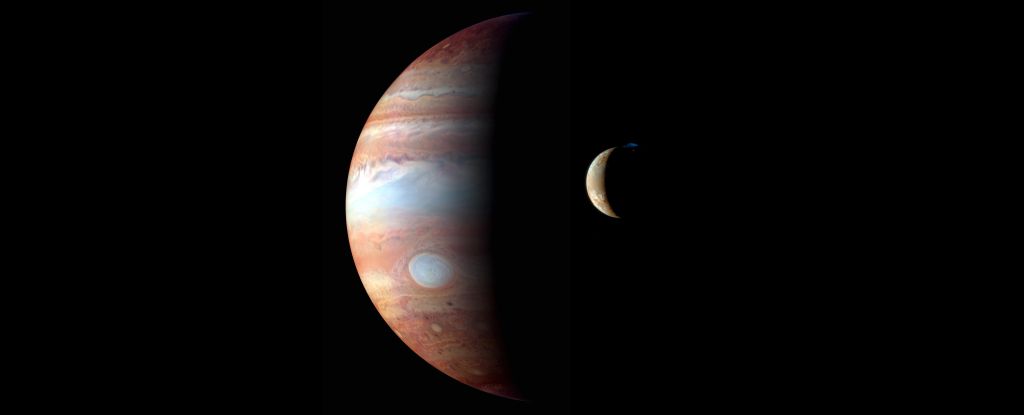Jupiter is the reigning champion of the Solar System’s most populated celestial bodies. After losing its lead to Saturn in 2019, astronomers have now counted 12 previously unknown moons in orbit around our Solar System’s biggest planet, bringing the known total to 92, and leaving Saturn in the dust.
The discovery of these moons was led by astronomer Scott Sheppard of Carnegie Institution for Science, who has spearheaded the discoveries after accidentally finding a plethora of previously unknown Jovian moons during a hunt for the mysterious hypothetical Planet Nine in the outer Solar System.
The orbits of the moons, which are unnamed, have been published in the circulars of the International Astronomical Union’s Minor Planet Center. It’s actually not that strange that we’re just now discovering these objects. They’re quite small and dim and hard to see, especially when you have Jupiter right there being all big and reflective.
When looking for evidence of Planet Nine, however, the researchers used a more powerful telescope than ever before, zooming in at higher resolutions, across a wider field of view than other observations in the past. This allowed them to spot small moons that might have escaped previous detection.
Nine of the newly discovered moons are quite distant from Jupiter, orbiting in a retrograde motion, the opposite direction to Jupiter’s rotation. This motion means they were probably passing rocks that were snared by Jupiter’s gravity and remained in orbit. The other three moons are closer to the planet, and orbiting in the same direction as Jupiter’s rotation.
These small moons are hard to spot because Jupiter outshines them, but they probably formed in Jovian orbit. The moons were spotted in 2021 and 2022, and follow-up observations have been made to map their orbits and learn more about Jupiter’s history.
It’s extremely likely that there are a lot more moons around both Jupiter and Saturn that we are yet to find. With the discovery of these 12 new moons, Jupiter has once again surged ahead in the battle for the most known moons in the Solar System. And really, it doesn’t matter which planet has more. There is just one clear winner in this whole race: science.
Source: www.sciencealert.com
